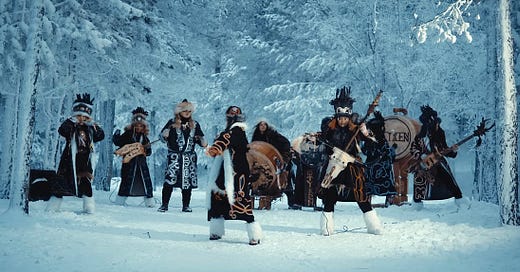There are approximately 7000 distinct recognized human languages spoken on our planet. Estimates of the number of languages were lower a century ago, but only because we didn’t know about most of them. Those estimates rose steadily until leveling off relatively recently. They are now decreasing because, even as we count them, languages are disappearing.
Many languages were brought to extinction through out-and-out genocide. This was especially the case in the Americas, where the colonial powers put bounties on indigenous people or kidnapped their children and sent them to concentration camps to be “re-educated.” Such policies were common in both North and South America.
Other languages disappear when the number of living speakers falls below the critical mass needed to pass them on fully to the next generation. Based on current census counts, about half of the existing languages today are projected to be extinct within two or three generations. Wars, oppression, and forced assimilation could accelerate this process.
There are teams of academics racing the clock to record endangered languages. Others are working through social agencies and political means to try to save whole communities or tribes. It is heroic work, and they also report it to be emotionally harrowing. When a language dies, it takes an entire universe with it because language is how we understand our universe.
In the early 1900s, Millman Parry and his student Albert Lord recorded the oral histories and folk songs of dozens of cultures that were in danger of vanishing. I took Lord’s course on Oral and Folk Literature when I was in college. He had even taught himself to play traditional instruments from some of the tribes he studied.
Lord performed songs for us that were not even known anymore in the lands where they originated. It was a strange and haunting experience. Today, some people have accused him of cultural appropriation. That’s an absurd accusation — his work was clearly an act of profound love and respect. I thought of him when I discovered Otyken.
Otyken are a group from remote central Siberia. They are all members of small tribes (Chulym, Ket, Selkup, Tuvan, etc.) There are less than 200 native speakers of the Chulym language left in the world. They are fully aware that their language is dying. Like other tribes in the region, they were decimated by centuries of invasion and war and, more recently, by wanton environmental destruction under Soviet and Russian rule.
To date, they have released tracks mainly in Chulym and Khakass and one song in Russian, addressed to the people who took their land.
Their instruments are authentic traditional instruments made by the band members and their families. The artists also sew their own costumes. These are based on traditional indigenous outfits but incorporate attributes of several Siberian tribes at once. They want to be ambassadors for all of the region's indigenous people.
They play ikili (a two-stringed bowed instrument used in Siberia, similar to the Mongolian morin khuur); khomys (jew’s harp); rattles similar to maracas and tambourines; a local variant of the mandolin; and several kinds of drums, as well as modern electric bass guitar and electronic keyboard/synthesizer. They occasionally play a saxophone they found abandoned in the forest near one of their villages. Their ikili is one of the most badass instruments I have ever seen.
They incorporate throat singing and chanting into their vocals, as well as imitating wild animal sounds and bird calls. When they were founded, they started off doing straight-up folk music. When they began to add a fusion of folk with modern rock sounds, they found themselves attracting fans worldwide.
I find their performances ethereal, hypnotic, and almost unbearably gorgeous. They now have a global following, and their recordings and YouTube videos are indelibly part of the record. Their music will survive even the day when no one is left who speaks their language. They know that and have said in interviews that this is their way of ensuring they leave a legacy after they have disappeared.
As they say in “Paradise Lost”:
“Now our land belongs to you. Now we only own the sky.”
“Phenomenon”
(music video; performed in Chulym)
This gives me both intensely spiritual and “Game of Thrones” vibes.
“Paradise Lost”
(live; performed in Russian; English subtitles — use closed captioning)
Imagine knowing your own civilization is about to disappear and finding a way to sing about it.
Sources:
Ethnologue https://www.ethnologue.com/
Linguistic Society of America https://www.linguisticsociety.org/content/endangered-languages
September, 2021, The Guardian (UK) https://www.theguardian.com/world/ng-interactive/2021/sep/06/canada-residential-schools-indigenous-children-cultural-genocide-map
Albert Lord, 1960 “Singer of Tales”, Harvard University Press https://www.hup.harvard.edu/catalog.php?isbn=9780674975736
Otyken official website https://otyken.ru/?lang=en




Amazing music. Gorgeous video. The drums remind me of Japanese taiko drums. The big one is very similar to the Odaiko drum. I think I told you this, but I got high with the Tuvan throat-singing band Huun Huur Tu at the Womad festival back in 2000. They were massive stoners.
What an amazing group. Your description and background on these artists is so perfect and well-researched. I'm in awe of the talent and the overall presentation. The lead singer is amazing and there's really no comparison to other sounds I've heard. I keep trying to find a reference for groups that I am familiar with but nothing comes to mind! Gorgeous video in the wilderness too.